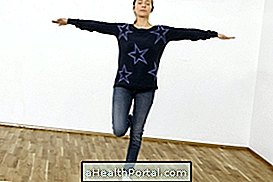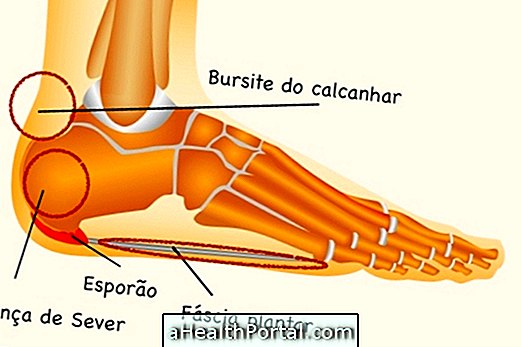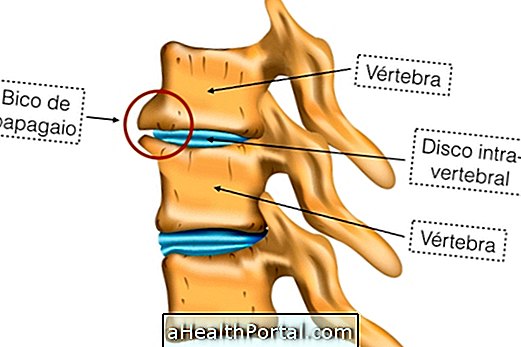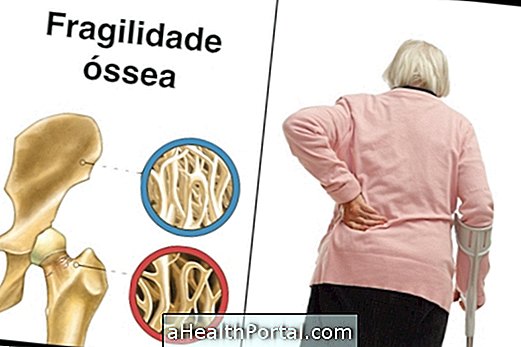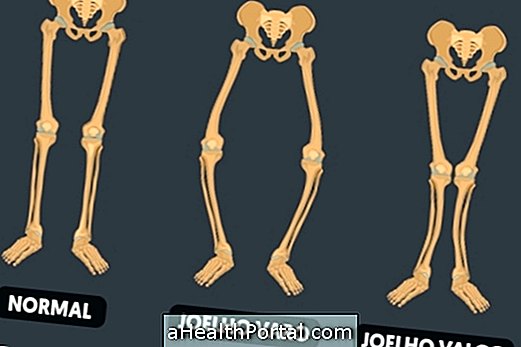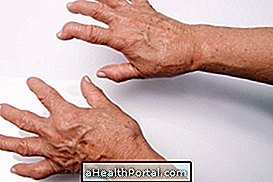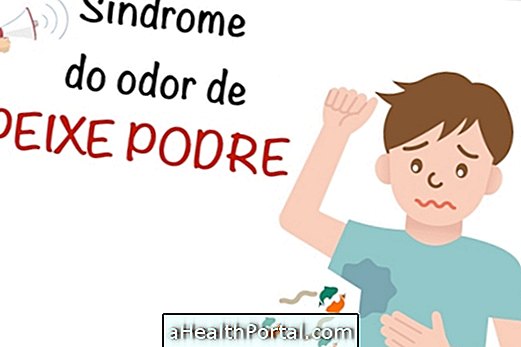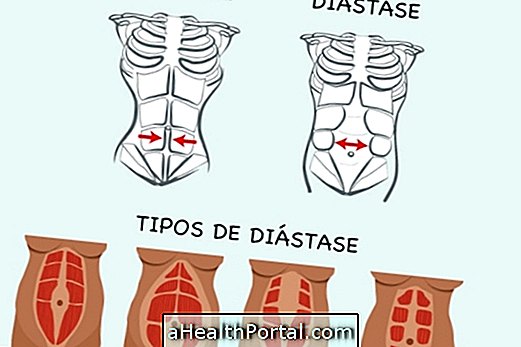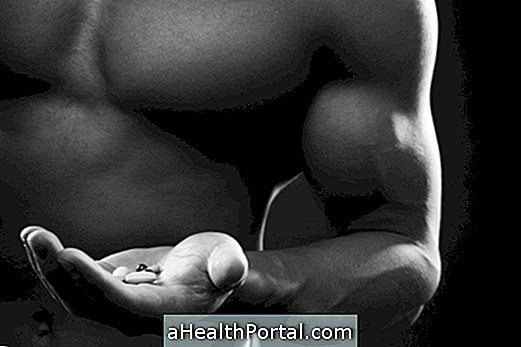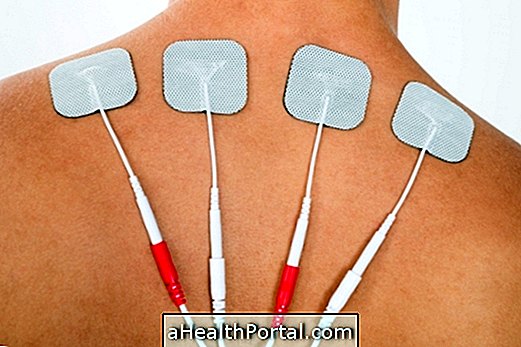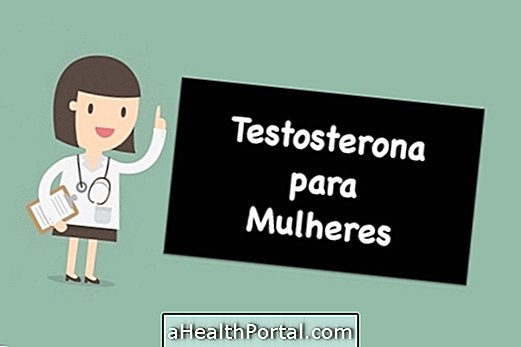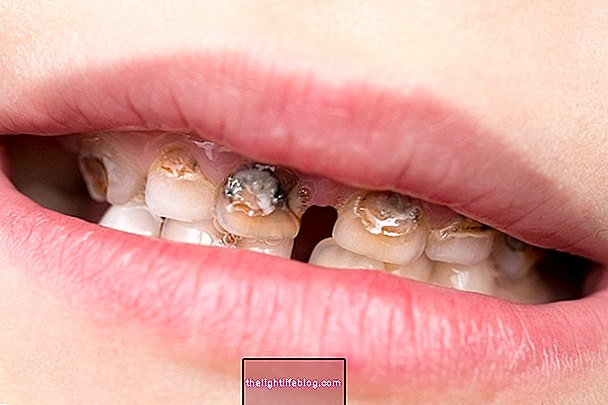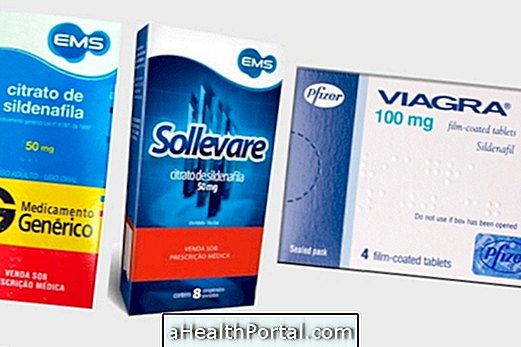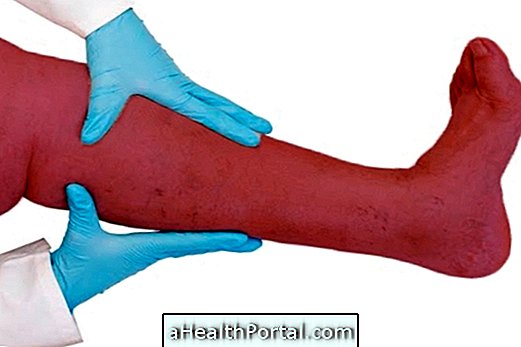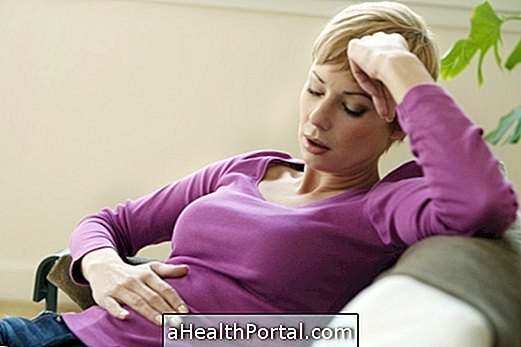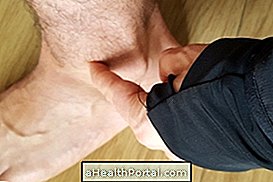Low back pain causes pain at the end of the spine, and may or may not be accompanied by pain radiating to one or both buttocks or to the legs in the same direction as the sciatic nerve. It can be classified as:
- Acute low back pain : Back pain arose less than 6 weeks ago, being caused by factors such as poor posture and improvement with medications or physical therapy;
- Chronic low back pain: Ador in the back has been present for more than 12 weeks, its cause is not always identified and treatment involves medications, physical therapy and exercise on a regular basis.
It can be caused by poor posture, bad back or may be associated with other diseases, such as herniated disc or arthrosis in the spine. Their treatment is done by taking anti-inflammatory and analgesic and physical therapy sessions, which may involve use of hot water bags, exercises and stretching.
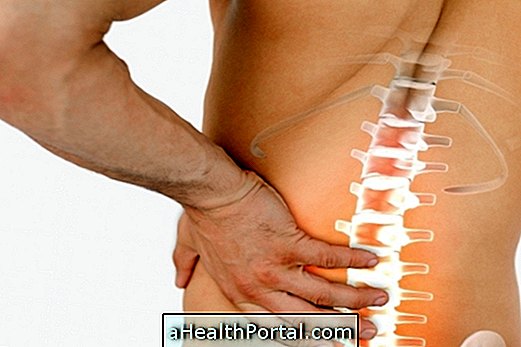
Symptoms and Diagnosis
The symptoms of low back pain are:
- Pain at the end of the spine, below the last ribs and above the buttocks;
- Contracture and increased muscle tension in the affected region;
- Inability to sit or stand for a long time, being necessary to seek new positions to sit, sleep or walk.
In order to diagnose low back pain, the orthopedist, rheumatologist or physiotherapist may, in addition to observing the signs of the disease, request an imaging test such as x-ray and MRI to check for other diseases involved such as herniated disc or check if the sciatic nerve is involved, which helps to define the most appropriate treatment for each case.
Sometimes the tests are normal despite the difficulty of moving and carrying out the daily activities, requiring treatment. Usually this type of back pain is more frequent in people who engage in manual activities such as weight lifting, repetitive movements, or long sitting or standing in the same position.
What causes low back pain
Back pain can develop due to poor posture, anatomical deformity or local trauma, but it is not always possible to find out its cause, and it can occur at all ages, affecting both men and women alike.
Some situations that favor pain at the end of the spine are:
- Repetitive efforts;
- Little traumas, as it turns out;
- Sedentary lifestyle;
- Postural error;
- Non-ergonomic position at work;
- Spinal arthrosis;
- Osteophytes (parrot beak);
- Osteoporosis in the spine;
- Myofascial syndrome;
- Spondylolisthesis;
- Ankylosing spondylitis;
- Rheumatoid arthritis;
- Tumor;
- Local infection.
The excess weight also influences the presence of pain at the end of the spine, because in addition to the change in the point of gravity, there is a greater sagging and distension of the abdomen.
How to treat low back pain
Treatment for low back pain can be done by taking anti-inflammatory drugs, corticosteroids, analgesics and muscle relaxants. Check out some examples of remedies for back pain that can be indicated by your doctor. In addition, physiotherapy is also indicated, and can be performed with super-warm and / or deep heating methods, stretching and strengthening exercises for the back.
Signs that low back pain can be very severe
Some signs and symptoms that may indicate that back pain is a more serious condition, and that requires an urgent medical evaluation are:
- Be under 20 and over 55 years of age;
- Have recently fallen or suffered an accident;
- Also show chest or chest pain;
- Fever;
- Loss of weight without apparent cause (diet or exercise);
- Use of long-term medications;
- Sensitivity changes, feeling of shock or numbness.
In these cases you should go to the orthopedic doctor as soon as possible.
